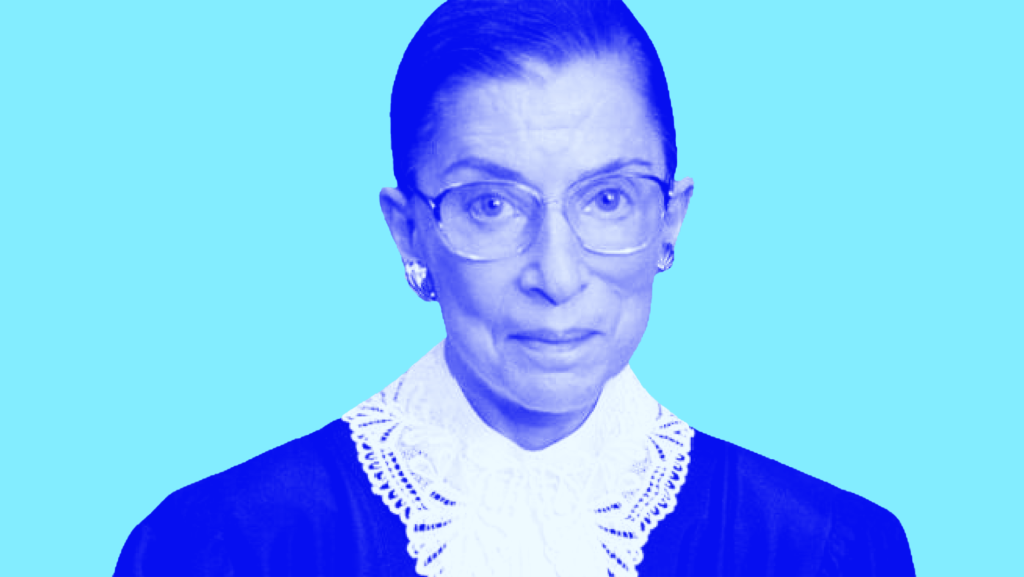The Urgency of Now

It is rare to meet a cultural, intellectual and historical icon. It is even rarer to share Passover Seders with one. I am blessed to have been able to do so.
Passover is, at its heart, the story of freedom, justice and the rule of law. Though Justice Ruth Bader Ginsburg died on the evening of the Jewish New Year, I will always associate her with the story of Passover and the never-ending struggle to lift the yoke of oppression. Last spring, the justice, surrounded by her family, joined in the ritual of declaring: “This year we are slaves, next year, may we all be free.”
Justice Ginsburg died before we reached next year — before seeing whether our country’s struggle for freedom and justice prevailed in the face of the current darkness, despair and modern plague. Her voice, her passion and her presence on the U.S. Supreme Court will be missed by all.
But, as Lincoln so eloquently reflected during the nation’s darkest days, “It is for us the living, rather, to be dedicated here to the unfinished work which they who fought here have thus far so nobly advanced. It is rather for us to be here dedicated to the great task remaining before us—that from these honored dead we take increased devotion to that cause for which they gave the last full measure of devotion.”
All of us have a moral obligation to continue the fight for freedom and justice that was the cornerstone of Justice Ginsburg’s life and career. And we must do it now. We cannot wait for our mourning to be over. We cannot wait until the pains of our grief have passed. We are, as Dr. Martin Luther King Jr. said in 1963, “faced with the fact that tomorrow is today. We are confronted with the fierce urgency of now.”
The fierce urgency of now requires us to all stand up in public and speak out for what is right and oppose what is wrong. We must not shrink from uncomfortable conversations or ignore injustice because it isn’t our place, or someone will take offense. We must be willing to stand up for what is right to our friends, family, colleagues, customers and clients. Justice Ginsburg did this every single time she wrote a dissenting opinion or spoke out in public about injustice.
The fierce urgency of now requires us to take political action — to not only register ourselves to vote but also our friends and family. And it requires us to then follow through and vote and make sure others we care about do the same. It also requires us to support candidates who share our values. Political campaigns cost money. We must support candidates who share our fight. This starts with Joe Biden and extends to Senate and House candidates, as well as those running for governor, state legislature, mayor, city council and prosecutor.
The fierce urgency of now requires us to hold our elected officials accountable. After blocking Merrick Garland’s confirmation, Senate Republicans have now announced plans to try to ram through the confirmation of a new justice. It was literally Justice Ginsburg’s dying wish to prevent Trump from appointing her replacement. We must insist our elected officials fight as hard as she fought cancer — with every ounce of strength they have. If they are not willing to honor her dying request, then they should step aside or be replaced. There is no middle ground. There are no free passes.
For lawyers, judges and voting rights advocates, the fierce urgency of now requires us to litigate harder, more passionately and decide cases with more courage than ever before. In her last published opinion on the right to vote, Justice Ginsburg wrote in her dissent that “Ensuring an opportunity for the people…to exercise their votes should be our paramount concern.”
We must summon the courage that Justice Ginsburg showed when she took on a patriarchal system that had denied women the right to vote until 1920, had failed to ratify the Equal Rights Amendment and had discriminated against her and women like her in law firms and in courtrooms for generations, and in many ways continue to do so.
As a lawyer, Ruth Bader Ginsburg did not shrink from the fight because the odds were against her in a case — she worked harder, better and smarter. She didn’t back down from a worthy fight for the cause she believed was just, and she didn’t let a loss in one case, in one court, dissuade her from fighting even harder in the next.
As a justice, Ruth Bader Ginsburg didn’t temper her views because she was in the ideological minority on an increasingly conservative Court. Instead, she wrote with passion, confidence and conviction. She understood that “dissents speak to a future age…The greatest dissents do become court opinions and gradually over time their views become the dominant view. So that’s the dissenter’s hope: that they are writing not for today, but for tomorrow.”
Kamala Harris concluded her nomination speech with words that speak to who Ruth Bader Ginsburg was: “Years from now, this moment will have passed. And our children and our grandchildren will look in our eyes and ask us: Where were you when the stakes were so high? They will ask us, what was it like? And we will tell them. We will tell them, not just how we felt. We will tell them what we did.”
Generations from now, when people ask who Ruth Bader Ginsburg was and what she did at this time, when the stakes were this high, the answer will be that until her dying breath she fought for justice with the fierce urgency of now.
May her memory be a blessing.